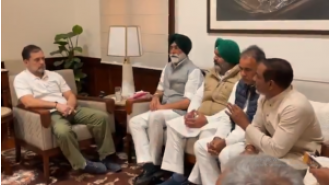A phone alert transformed my parenting approach.
I was uneasy and extremely swamped. How did I allow this to happen?

Kirsty, a mother of two, realized that she was overloading her Google account with pictures and videos of her children. She considered paying for more storage, but she knew that wasn't the real issue. She was more concerned about the unhealthy habit of constantly taking photos of her kids instead of simply enjoying the moment with them.
It wasn't until she delved into her Google Photos that she realized the extent of her "happy-snapping" addiction. Along with the photos she intentionally saved, there were also countless pictures she had deleted from her phone that were still being backed up. This included every selfie, every meal picture, and every item she had uploaded onto Vinted. She even had 95 photos of one of her children sucking on a broccoli floret as a baby.
Kirsty was shocked and overwhelmed by the amount of unnecessary pictures she had accumulated over the years. She couldn't even remember taking some of them, which made her realize that she wasn't truly living in the moment. She questioned why she felt the need to document every single aspect of her children's lives. Did she really need a picture of her child looking miserable in a supermarket trolley?
As she scrolled through the years of photos, she also realized the negative impact it was having on her children. They had developed a habit of constantly asking her to take pictures of them and would even demand retakes if the photos didn't meet their expectations. Kirsty didn't want her kids to feel like they needed to constantly seek validation through social media and the number of "likes" they received on their photos.
She also didn't want their childhood memories to be filled with a camera always in their faces. Kirsty knew this could have a negative effect on their self-esteem. She didn't want her children to think that they had to look perfect in every photo to please their mother. She wanted to start capturing the moments that truly mattered and stop obsessing over every little moment.
Kirsty reminisced about her own childhood when photos were developed and there was only one picture of a moment, rather than several. She missed the excitement of picking up the photos and seeing how they turned out, even if they were imperfect. She didn't want to edit or filter her children's childhood memories.
She decided to make some changes to her photo-taking habits. She turned off the automatic backup on her phone and only selected a few pictures each month to upload onto Google. She also started using an app to print out 45 free photos each month to display in her home. This not only reduced her Google storage, but it also helped her children feel a sense of belonging and boosted their self-esteem.
Kirsty's children have also started to adopt a healthier attitude towards taking pictures. Her daughter has learned to think about the purpose of a photo before taking it and enjoys being in the moment more. Her son, on the other hand, has embraced his silly side and doesn't care about looking perfect in pictures. Kirsty sees this as a sign of good self-esteem.
She has even gone a whole month without taking a single picture of her children. It was a difficult habit to break, but she feels like they are all better off for it. Kirsty is proud of the changes she has made and is grateful for the memories she has been able to truly cherish. She now encourages others to do the same and to not let their phones and cameras consume their lives. After all, the most important moments are the ones we experience with our loved ones, not the ones we capture on a screen.










